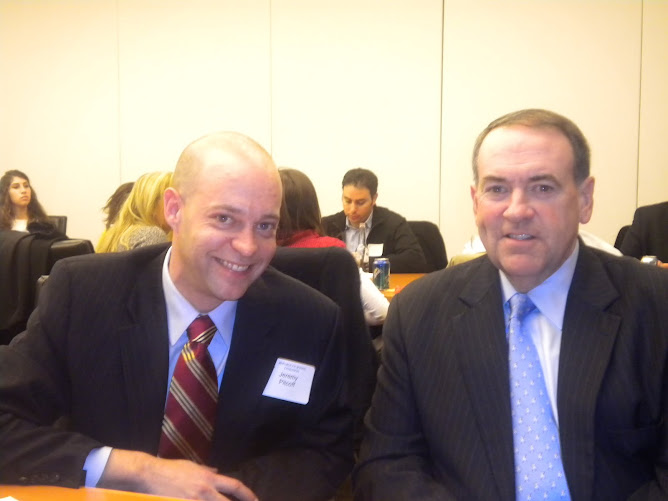In honor of Presidents Day, it is only fitting that we take a moment to pay tribute to the defining qualities of our nation’s history that have led to its unprecedented brand of exceptionalism. The history of America is, above all else, a history of words and vision. Throughout the ages, our leaders, heroes and political thinkers have possessed the unique ability, via writing and oratory, to define their respective generations.
Virtually every political conviction that I now embrace was inspired by the majestic words of America’s Declaration of Independence. The history of mankind was literally transformed with the opening paragraphs of this timeless, literary masterpiece. A new nation, born of human rights, boldly pronounced that these rights were not theirs alone, but the self evident truths of all mankind, endowed by their creator. Thus, from the onset of the nation, American words were bigger than America itself. This infant nation was to lead the world into an era of freedom and liberty by the sheer force and eloquence of its rhetoric.
Having won the revolution and having established a constitution unique to the annals of history, these newly united states were drawn into a period of introspection. The war of words that ensued would influence American policy for the better part of a century. The letters submitted by Thomas Jefferson and Alexander Hamilton to President George Washington concerning the establishment of a Bank of the United States represent the most complete and intriguing arguments for and against government expansion in American history to date. While the luxury of hindsight allows for my preference of the Jeffersonian, small government model, Hamilton’s arguments are incredibly persuasive and explain the virtues of centralized government better than any politician of the modern era.
When Jefferson became President, his pride in the nation that he helped to form rendered him morally incapable of participating in the age old practice of paying tribute to North Africa’s Barbary Pirates. In what became America’s first war on terror, Jefferson refused to offer blackmail money to the Muslim states of Morocco and Tripoli for allowing American merchants the “freedom” of passing their coasts without risk of molestation or attack. Stephen Decatur, the hero of what became known as the Barbary Wars, and later a champion of the War of 1812, epitomized the newfound sense of American nationalism with his famous banquet toast: “Our Country! In her intercourse with foreign nations, may she always be in the right, but our country, right or wrong.”
This sense of unity, however, proved ephemeral as the tensions between the American North and South began an inevitable drift toward war. John C. Calhoun of South Carolina, Andrew Jackson’s former Vice President, made clear the fragility of American nationalism with his movement to nullify federal tariff laws by any means deemed necessary, up to and including secession. President Andrew Jackson used the power of words in the no-nonsense style of the American West, to bury the flames of rebellion: “Our Federal Union! It must be preserved.” President Jackson’s commanding language served to diffuse the immediate crisis and delay civil war for another quarter of a century.
By the year 1860, these North-South tensions would come to a head, sparking a war that would result in more American fatalities than the sum total of Americans killed in all other conflicts from 1776 to the present. Abraham Lincoln, the Northern leader of that civil war, reestablished the meaning of America, with words as timeless as the principles he was attempting to preserve. In his brief address at Gettysburg, Pennsylvania, Lincoln spoke of a nation “conceived in liberty, and dedicated to the proposition that all men were created equal.” He brought new meaning for some, and solidified the meaning for many, of the war they were gallantly fighting. That the soldiers who had perished in that war had given their “last full measure of devotion,” not in vain, but in the promotion of human liberty, was a quintessentially American theme. Lincoln ensured, through his literary genius, that the meaning of this tragic conflict would not be diluted through time.
From Franklin Delano Roosevelt’s “Day of Infamy” speech – “We will gain the inevitable triumph, so help us God,” to John F. Kennedy’s acceptance of full responsibility in the Bay of Pigs debacle – “Victory has a thousand fathers, but defeat is an orphan,” to Ronald Reagan’s final assault on Soviet Communism – “Mr. Gorbachev, tear down this wall,” America’s past can best be viewed through the prism of its orators and writers. These words offer us the wisdom of the past and hold the key to our nation’s future.
In the late 20th and early 21st centuries, America has witnessed an educational shift toward international studies. Our public schools, at the behest of the federal Department of Education, have placed less emphasis on the history of American words, concentrating instead on our nation’s global impact. This neglect of American history is shortchanging our nation’s youth, for it is depriving them of the lessons of the past, thus leaving them less prepared to meet the challenges and crises of the future. An overhaul of our priorities is in order.
Jeremy Pitcoff
A quest for the Coservative dream: Tax Cuts, Fiscal Conservation & Maximum Individual Freedoms Consistent with Law & Order
Monday, February 14, 2011
Subscribe to:
Posts (Atom)
Conservative Compatriots

Jeremy Pitcoff & Governor Mike Huckabee












